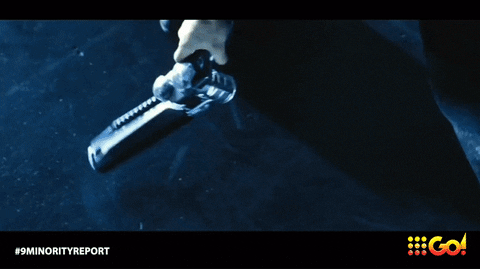The film "Minority Report" directed by Steven Spielberg, released in 2002, explores the concept of predictive policing through a futuristic lens. The movie is set in Washington DC where a special police unit called 'PreCrime' uses psychic abilities to prevent crimes before they happen. While this sounds like an ideal solution for crime prevention, it raises several ethical considerations that are worth discussing.
Firstly, the concept of predictive policing itself brings up questions about individual privacy and freedom. In "Minority Report", citizens are subjected to constant surveillance which allows authorities to predict potential criminal behavior based on their genetic makeup or past actions. This could lead to a society where people feel constantly watched and judged by the state, leading to erosion of trust between law enforcement agencies and civilians.
Secondly, there's the issue of false positives - when innocent individuals are wrongfully accused due to flawed predictions. In "Minority Report", Tom Cruise's character John Anderton is falsely implicated in a murder plot despite having no criminal record or history of violence. This raises concerns about the accuracy and reliability of predictive algorithms used by PreCrime, which could result in miscarriages of justice if not properly regulated.
Lastly, there's the question of whether it is ethical to intervene in someone's life before they commit a crime. While preventing harm may seem like an obvious benefit, it also opens up a Pandora's box of potential abuses such as targeting specific groups or individuals based on prejudice rather than evidence-based predictions.
In conclusion, while "Minority Report" presents an intriguing vision of the future, its exploration of predictive policing raises several ethical concerns that need to be addressed before we can fully embrace this technology. As society continues to grapple with these issues, it is crucial that we engage in open dialogue and ensure that any implementation of such systems respects individual rights and freedoms while maintaining public trust in law enforcement agencies.
